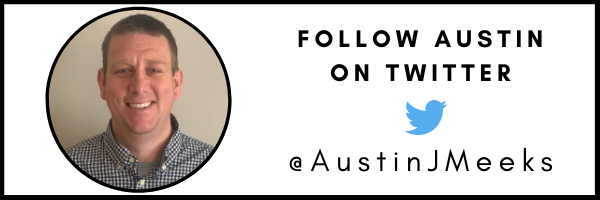TL;DR:
- Will we have fewer and fewer individuals go into education as a career?
- Those in education will innovate and find solutions to problems both now and in the future.
- Increase autonomy, control the narrative, and recruit.
Principle of Population
In 1798 Thomas Malthus wrote An Essay on the Principle of Population. It outlined a theory that human population growth would outpace food supply. According to Malthus, famine was the future. Over 200 years have passed since that essay was published. You don’t have to look very hard to realize that this has not come to fruition and most likely never will.
That doesn’t mean Malthus was wrong. His math “added up.” He didn’t account for the human race’s ability to get better at growing and generating food. When presented with dire consequences, people adapted and innovated to create lasting change for the better.
Many in education share a similar sentiment to Malthus in 1798. While they aren’t predicting starvation, they believe that conditions are deteriorating at a path that will leave few or no educators in the profession. Anyone offering a rebuttal to this theory seems to receive furious claims of toxic positivity.
How is one to respond?
Are we doomed?
The best innovations often come out of necessity. Share on XA Case For Optimism
Like Malthus in 1798, these theories have some validity—for now. That said, they also are severely underestimating our ability to adapt and innovate in the face of adversity. In my recent post, 7 Investing Lessons Worth Applying to Education, I shared an excerpt from Morgan Housel’s book The Psychology of Money that is worth sharing again in this context.
“Threats incentivize solutions in equal magnitude.”
The most concerning part for many educators is those solutions currently seem out of reach. Students may often view educators as the holders of knowledge. Educators know their roles go far beyond that, but subconsciously we may start to identify with that sentiment. That makes it hard, in this case, to say, “I don’t know.”
Reimagining a world of education without staff shortages, intense school board meetings, and political drama can seem like one big, hairy, audacious goal. It’s overwhelming and hard to remain solution-focused in the face of what many consider an impossible task.
We need to think smaller and acknowledge the steps and innovations we’ve already taken. Author of Atomic Habits, James Clear, shared his thoughts recently on the power of small habits and the impact on motivation.
Evidence of Progress
COVID and several other factors have posed a threat to the noble profession of being an educator. The good news is there are signs of solutions and innovations. Be wary of anyone that says these small wins don’t make a difference. Anyone that has run a marathon (myself not included) can attest that you do so one mile at a time, or even on a smaller scale, by putting one foot in front of the other for 26.2 consecutive miles.
We have the advantage these small wins compound over time and lead to other small wins that require less effort. Here are just a few of the many solutions I’ve seen generated out of necessity over the last several years.
Virtual parent-teacher conferences: While arguably not as effective as in-person conferences, we’ve removed a barrier for some and increased access for all.
Work from home: Many districts have begun trusting their educators with flexible working locations on workdays and snow days.
Expanded PLNs/PLCs: Professional learning communities are now exercising their ability to meet virtually. While this option has been there for years, it’s removed another scheduling/traveling barrier allowing larger districts the opportunity to improve alignment.
Technology efficacy: Educators are more willing and more likely to experiment with new technologies due to being “forced” to do so during virtual teaching.
Master schedule changes: How often have ideas never been given the light of day in education because of the almighty master schedule? We’ve realized that we can be flexible with master schedules at the building and district levels.
[scroll down to keep reading]
Solving the Teacher Shortage: Next Steps
There is still room for growth. Educators are still contemplating leaving the field. Enrollment in teacher education programs is still declining. How do we continue to make progress?
Increase Autonomy: Education has always had limitations in this area that the private sector may not have. Autonomy increases fulfillment, and we can take steps to address this. We can maintain alignment and a guaranteed and viable curriculum while looking for small pockets to increase autonomy. Professional learning is a great place to start.
Control the Narrative: Districts, buildings, and educators would be wise to do their part in controlling the narrative and sharing the great stuff that is happening in their buildings and classrooms. If stakeholders don’t know what is going on, they will make it up. We need to tell our story.
Recruit: Enrollment in teacher education programs is dwindling. Schools do a great job of promoting and advertising a variety of career paths through job fairs, internships, Junior Achievement, etc. How much emphasis are we putting on advertising the career of an educator?
EDUpreneurship: Many professionals in the field want a new challenge but may not want to go into administration or teacher leadership. Educators have years of experience and skills to share. Edupreneurship is one way to split the difference and build skills and mastery in another area while keeping the role we love as an educator.
Address the Money Narrative: “I didn’t go into education to get rich.” We underestimate the damage that narrative has on recruiting new educators to the profession. While school districts will never compete with the limitless ceiling of income the private sector can offer, they can be more proactive in promoting the financial benefits. Teaching is one of the five most common occupations of millionaires.
Conclusion
The negative vibes in education today are not permanent. Adaptations and solutions are on the horizon. There are steps to celebrate, and acknowledging them is crucial. There, of course, is still room for improvement, which is exciting. The best innovations often come out of necessity.
About Austin Meeks
Austin Meeks currently serves as an induction coach, mentoring and coaching PK-12 teachers new to the field. In addition to working with beginning teachers, Austin also leads professional learning for coaches that serve in the consortium. He has previous experiences as a classroom teacher, model teacher, MTSS building facilitator, and substitute building administrator. Austin enjoys making connections between his PK-12 experiences as a teacher, administrator, and coach with his professional learning to generate ideas that create lasting systemic changes in education.


